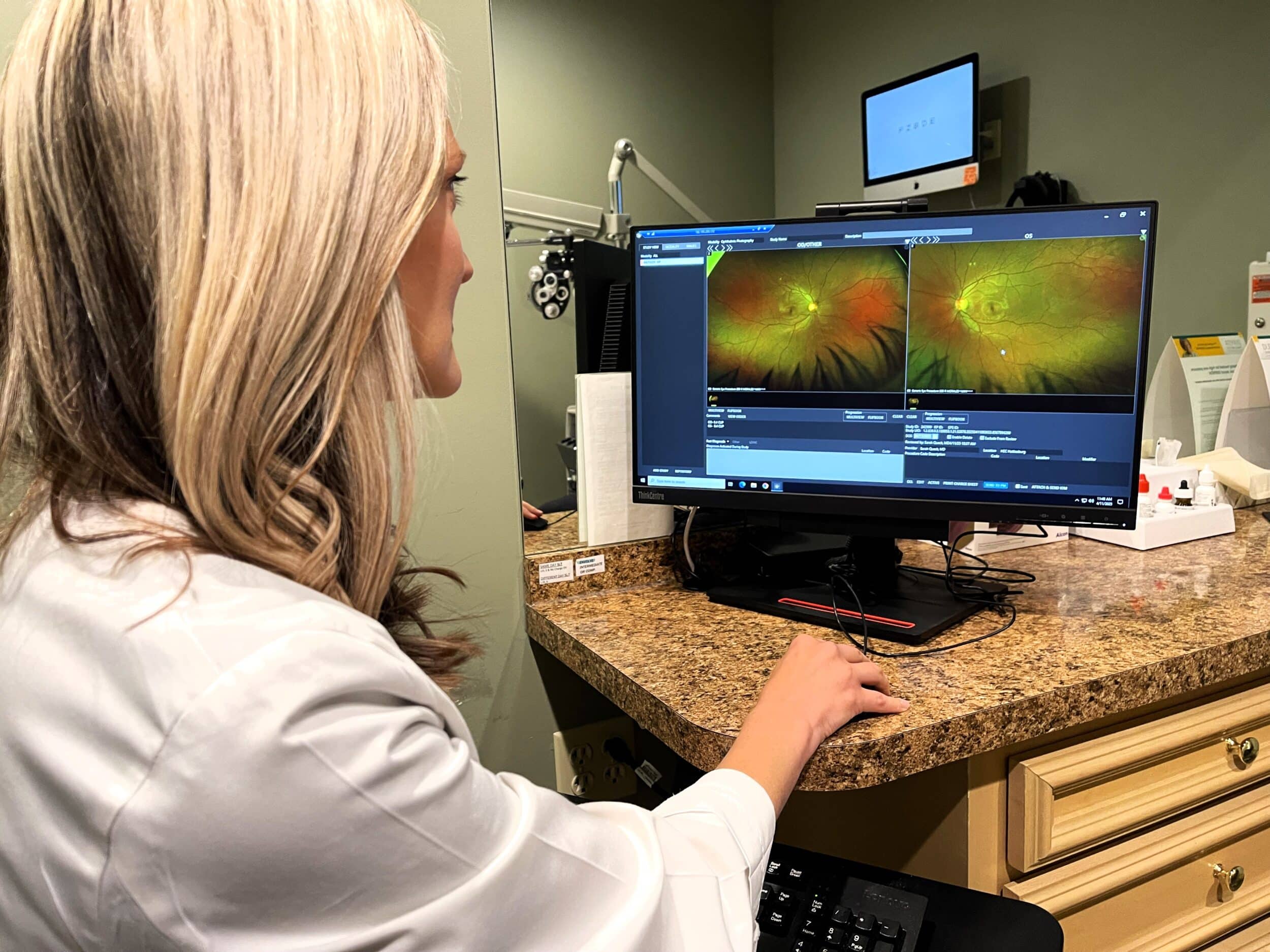Could Your Health Choices-Good or Bad-Have an Impact on Your Eyesight?

A healthy lifestyle can help you live your best life now, as well as reduce your risk of disease or disability later in life. That goes ditto for your eyes-some TLC now could increase your chances for unimpaired vision throughout your life.
“What’s good for the body is generally good for the eyes,” says Dr. Sarah Queck, ophthalmologist with Hattiesburg Eye Clinic. “The things you do affecting your overall health-good or bad-will often affect your vision too.”
May is Healthy Vision Month, and eye care providers everywhere are highlighting what people can do to protect their eyesight, now and in the future. Here, then, are 5 eye health practices Dr. Queck recommends to care for your vision for a lifetime.

Eat healthy. Consuming a number of common nutrients can benefit your eyes. “Dark leafy green vegetables like spinach or kale are high in lutein and zeaxanthin, two essential nutrients that contribute to eye health,” says Dr. Queck. “Foods like salmon, tuna, or sardines with omega-3 fatty acids may help reduce the risk of macular degeneration. Vitamin C found in citrus has antioxidants that may delay cataract formation, and beta-carotene from carrots and similar vegetables can improve night vision.”
Exercise regularly. Although there’s little research showing a direct connection between physical activity and eye health, Dr. Queck says the effects of exercise on the rest of the body often offer an indirect benefit. “Regular physical exercise can lead to weight loss, which improves blood glucose levels and blood pressure, as well as lower cholesterol. These in turn could have a positive impact on eye health.”
Manage diabetes. Diabetes, a metabolic disease that causes elevated glucose levels in the bloodstream, can damage various organs in the body, including the eyes. “Diabetes can damage the tiny blood vessels in the retina leading to abnormal bleeding and blood vessel formation in the eye. This can result in blurred vision, glaucoma, or even retinal detachment,” says Dr. Queck. “Diabetics can reduce the risks of these eye conditions by carefully managing their condition with the help of their primary doctor.”
Protect your eyes from UV rays. While time in the sun can benefit your immune system, too much exposure to ultraviolet rays could damage your eyes. “Excessive UV light exposure increases your risk for conditions like abnormal corneal growths or even eye cancer,” says Dr. Queck. You can limit your sun exposure by wearing hats and sunglasses with 100% UV ray protection while outdoors.
Undergo an annual eye exam. Even if you practice good health habits, there’s always a chance you could still develop a serious eye problem. According to Dr. Queck, the best-case scenario is to detect eye disease as early as possible by means of an annual eye exam starting around age 40. “Annual exams are important for identifying and treating a number of conditions like glaucoma, macular degeneration, or diabetic retinopathy that could potentially lead to vision loss or blindness.”
Even if you’ve been lax heretofore practicing healthy lifestyle habits, starting now might still garner you future benefits-including better vision down the road.
To learn more about Hattiesburg Eye Clinic’s comprehensive eye care, be sure to visit our website. To find out how Hattiesburg Eye Clinic can improve your vision health, call 601-268-5910 (or toll-free 800-624-8254) or schedule a consultation with us at www.hattiesburgeyeclinic.com/contact-us/
